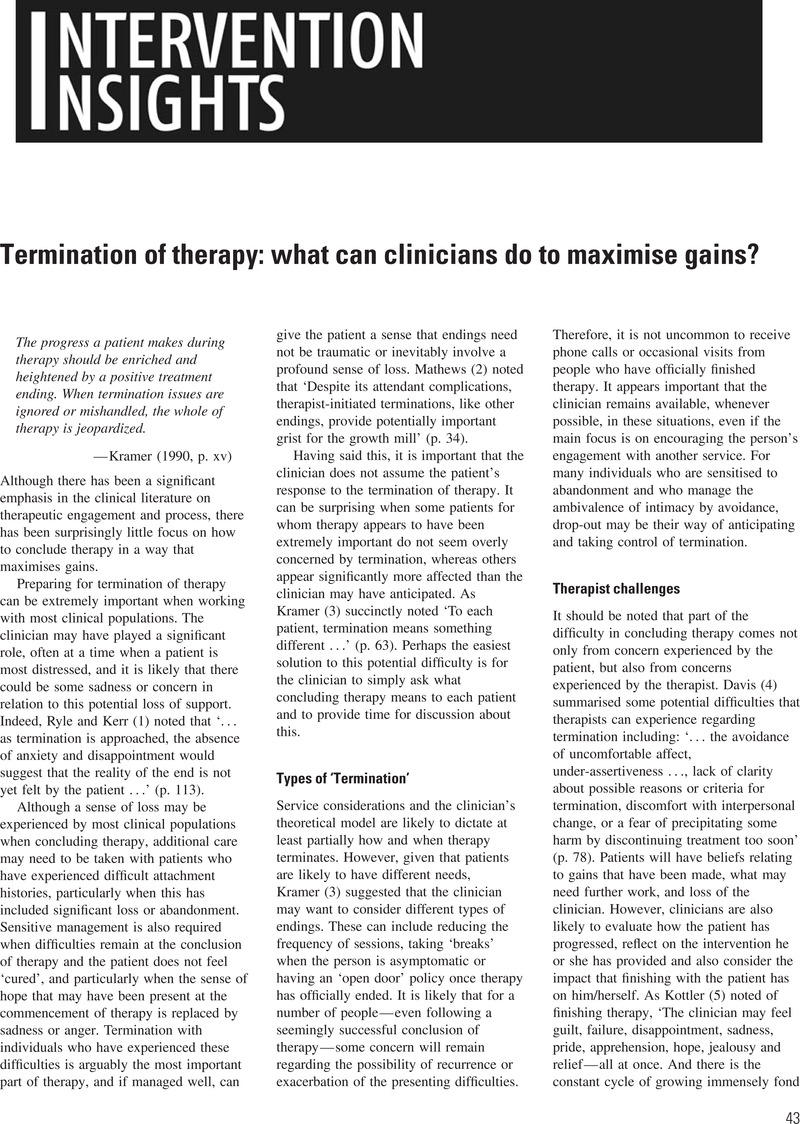Crossref Citations
This article has been cited by the following publications. This list is generated based on data provided by Crossref.
Malhi, Gin S.
2010.
Quality of life… on Earth.
Acta Neuropsychiatrica,
Vol. 22,
Issue. 1,
p.
1.
Baumann, Philipp S.
Elowe, Julien
Mebdouhi, Nadir
Solida, Alessandra
and
Conus, Philippe
2017.
Formulation de cas dans la psychose débutante : Quels outils pour le travail en équipe?.
The Canadian Journal of Psychiatry,
Vol. 62,
Issue. 7,
p.
457.
Statham, Verity
and
Beail, Nigel
2018.
The views of service users on the accessibility, acceptability, and effectiveness of psychodynamic psychotherapy.
International Journal of Developmental Disabilities,
Vol. 64,
Issue. 3,
p.
175.
Wright, Karen Margaret
2021.
Exploring the therapeutic relationship in nursing theory and practice.
Mental Health Practice,
Vol. 24,
Issue. 5,
p.
34.
Kooij, Lieke H.
van der Pol, Thimo M.
Daams, Joost G.
Hein, Irma M.
and
Lindauer, Ramón J. L.
2022.
Common elements of evidence-based trauma therapy for children and adolescents.
European Journal of Psychotraumatology,
Vol. 13,
Issue. 1,



